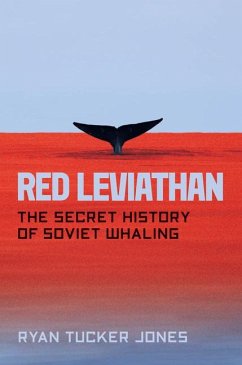"For whales, the twentieth century was a time of tragedy, with several species nearly completely annihilated by industrial whaleships. The impacts of that history still ripple through today's oceans. In this new account, based on formerly secret Soviet archives and interviews with ex-whalers, environmental historian Ryan Tucker Jones shows the unique role the Soviet Union played in the whales' destruction. As other countries-- especially the United States, Great Britain, Japan, and Norway-- expanded their pursuit of whales to all corners of the globe, Bolshevik leader Josef Stalin determined that the Soviet Union needed to join the hunt. What followed was a spectacularly prodigious, and often wasteful destruction of humpback, fin, sei, right, and sperm whales in the Antarctic and the North Pacific, done in knowing and secret violation of the International Whaling Commission's rules. Soviet recklessness and Cold War intrigue encouraged this destruction, but as Jones shows, there is a more complex history behind this tragedy, one which helps reveal some of the real successes-- and failures-- of the Soviet experiment. Jones also reports, how, ironically, today's cetacean studies benefitted from Soviet whaling, as Russian scientists on whaling vessels made key breakthroughs in understanding whales and whale behavior. Finally, Jones shows the way that the Soviet public began turning against their own country's whaling industry, working in parallel with Western environmentalists such as Greenpeace to help end industrial whaling, not long before the world's whales might have disappeared altogether"--








